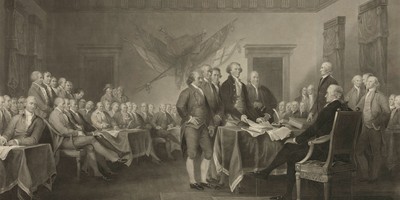We’re just weeks into President Donald Trump’s second term in the White House, and he has made it clear that America’s interests are back to being priority number one in the White House. The wave of support that sent President Trump back to Washington signified Americans were not happy with the status quo, and it’s equally clear President Trump acutely understands this given his approach in the early days of his second stint as president. However, now that he has implemented 25 percent tariffs on Canada and Mexico and 20 percent tariffs on China - with Mexico still potentially in his crosshairs - it is crucial that President Trump takes care to not inadvertently harm American consumers.
Like any business owner, I can tell you success comes from using a targeted, surgical approach and firm negotiating skills to produce a desirable result. That same philosophy should apply to crafting better trade deals for our country. In his first term, securing better deals was a cornerstone of the president’s policy, and I believe he can achieve even greater success during this term. However, that success will not come by painting with a broad brush that results in a significant amount of collateral damage. Rather, this success can be achieved by being selective in how his tariffs are applied. Otherwise, there is a risk to American small businesses and the ordinary consumers who helped elect him in November.
There are plenty of industries where it makes sense to apply tariffs. For example, President Trump applied tariffs to steel imports back in 2018, something steel workers understandably supported both back then, during the 2024 campaign, and now given steel’s importance to the American economy. Tariffs are a proven protection tool, but they can also serve as a useful negotiating tactic. Look no further than President Trump’s recent political victory over Colombia, which agreed to take on deportees from the U.S. after the mere threat of tariffs, or Mexico’s agreement to deploy military forces to the U.S. border and assist in the fight against illegal immigration.
It’s a testament to tariffs’ usefulness, even without implementation. But lumping in vital industries with low-security sectors, as is the case with the president’s current order, is ultimately going to harm regular Americans.
Recommended
The current tariffs include industries that have little-to-no security risks for America’s competitiveness, and now consumers who have long suffered under former President Biden’s inflationary policies are facing higher prices on regular goods. Does it make sense to apply tariffs on, say, the toy industry? The majority of toys sold here in the U.S. are made inexpensively in China to keep them affordable for Americans. As this Wall Street Journal piece notes, a 10 percent tariff on Chinese goods will raise the price of everything from cherry tomatoes to maple syrup, tequila and even toy dump trucks. As an example, those toy trucks would go from $29.99 to as high as $39.99 with these tariffs. As a result, you’ll likely see families begin purchasing much cheaper knock offs from online sellers, where critical safety standards are nonexistent. And this type of behavior will not be limited to toys, either. We’ll see this occur in every industry subjected to rising costs.
The article also notes that new tariffs would likely raise prices on smartphones, despite previous iterations of tariffs levied during Trump’s first term that excluded consumer products. Couple that with groceries like avocados, of which more than 80 percent are imported from Mexico, and Americans will most certainly see even higher prices that will force them to make tough decisions at the store checkout.
I appreciate the need to keep America competitive on the world stage, but blanket tariffs are simply not the answer. President Trump has gone out of his way to defend vital U.S. industries, and the success of his second term will depend on keeping his focus on those high stakes sectors that need protecting.
Excluding sectors that have little or no impact on our nation’s trade should be next on the president’s agenda as we prepare for our negotiations with our trading partners. It’s the best way for President Trump to maintain his strong standing with those countries while also keeping his promise to lower prices for everyday Americans.

























Join the conversation as a VIP Member